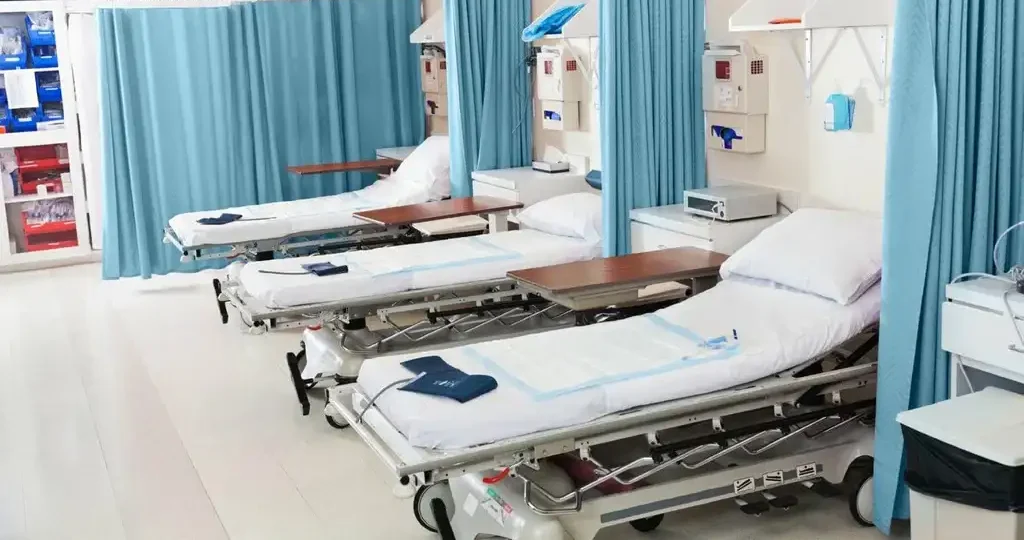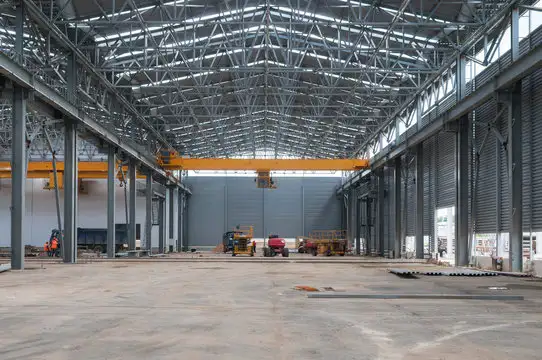Build a hospital is a big project. It will cost quite a sum to plan for it, build it, and equip it. The cost varies according to the size, location, and type of hospital. Building a hospital costs on average from $71.6 million to $189.6 million while including the costs of construction, medical equipment, and all permits.
Some hospitals are more expensive because specialized technology or services are required. A small hospital is less costly than a big hospital in a city. Good materials and equipment are important for safety and care. Knowing the costs helps hospitals make better plans for their communities.
The Cost Breakdown for Building a Hospital

The cost of Build a hospital involves construction costs, but that is not the end of the costs incurred.
Here is a breakdown of the typical costs:
| Location | Cost Range |
| Site Preparation | $4M – $15M |
| Construction | $30M – $80M |
| Interior Finishes | $10M – $30M |
| Medical Equipment | $15M – $40M |
| HVAC, Plumbing, Electrical | $8M – $20M |
| Permits and Fees | $1M – $5M |
Breaking Down Hospital Construction Costs
The cost of construction for hospitals varies so much because of factors such as locations, sizes, and types of hospitals. A subsequent average breakdown of costs by type and size of hospital is as follows:
General Hospital Costs:
Average costs range typically from $60 million to $190 million depending on the locality and the medical costs required. For companies in large cities, the costs of hospitals are much higher than in small communities.
Hospital Size-Based Costs:
- Emergency Hospital: Seasonal Hospital- Cost ranging from $200 to $500 per square foot. Temporary structures for emergencies are established in natural calamities or during a worldwide pandemic
- Micro Hospital: It comes to around $280 to $400 per square foot. These are not as much of a hospital as they are space-age urgent-care centers, equipped with a lot more medical equipment than an urgent-care center would have to treat more serious cases.
- Modular Hospital: In this case, hospital costs per square foot would be $500 to $600. Modular hospitals are built from prefabricated parts, which is why they are less expensive and more flexible and can be rapidly erected, all of which provide full-service care
These are the general guidelines for hospital construction costs. Many other factors have a direct impact on the total price, like site preparation, labor rates in the area, materials used, and the hospital’s functions.
Cost Estimation of Construction Hospital Parts:
Hospitals are divided into different units, each serving a specific function.
Here’s an overview of these units and their construction costs:
1: Hospital Administration:
Houses are the office spaces where administrative functions in the hospital typically take place. It is assumed to cover a larger area in a teaching hospital. It ranges between $450,000 and $600,000 for construction.
2: Hospital Capacities (Hospitality Services):
These comprise housekeeping, laundry, and food service. Those costs vary depending on what the hospital needs. The construction generally varies between $450,000 and $1 million.
3: Hospital Safety Standards:
Essential utilities, including sanitation, oxygen, and gas supply systems, as well as radiology requisites, are under these standards. The costs spent to ensure safety standards have a hefty price tag, ranging from $3.5 million to $6.4 million.
4: Medical Departments:
Medical departments include the emergency room, surgical, diagnostic, and various medical-specialty units. These cover the major portions in terms of the cost of constructing a hospital. The total costs will usually range from $45 to $70 million.
Each unit plays a vital role in the operation of a hospital, and their construction costs can vary depending on the hospital’s size, type, and location.
Hospital Construction Cost per Bed
| Number of Beds | Average Construction Cost (Labor Included) |
| 50 Beds | $25 million – $75 million |
| 100 Beds | $50 million – $150 million |
The expense incurred here is the total location, specialty of treatment, and facilities provided by the hospital. Specialized hospitals or those with advanced technological facilities could be expensive per bed.
Factors Affecting Costs in Hospital Construction
Location
The location of the hospital directly influences the cost of construction. It usually costs more to acquire land and hire labor in cities than in rural areas. In addition to that, closeness to suppliers and routes of transport affects the costs of materials and logistics, which reduces the overall cost of building the hospital.
Size and Scope
The larger the scope and size of a hospital project, the greater the cost incurred. More beds, departments, and internally specialized facilities require higher resources, resulting in more expensive developments. In addition to this, particular design complexity and the number of various services usually available, such as operating rooms and intensive care units, also contribute to the amount allocated in the budget.
Type of Hospital
The type of hospital being constructed—whether general, specialty, or teaching—can be a factor that might affect the cost of constructing a hospital. Special equipment and accommodation accompany a specialty hospital; however, teaching hospitals need more ancillary units such as classrooms and laboratories for training, which add to overall expenditure
Regulatory Requirements
Hospitals have to meet various regulatory requirements pertaining to some building codes, which may also vary from one region to the other. These regulations ensure safety, accessibility, and environmental standards, but at the same time, they add complexity and cost to the project itself. Proper planning and early compliance will save the organization from delays and extra costs.
Benefits of Building a Hospital
Improved Healthcare Access
It is a great improvement for bringing health care services nearer to home for the localities, as it enables patients to receive their medical treatments timely. By improving access, patients will experience less delay in emergencies and better health outcomes.
Economic Growth
The opening of a new hospital promises to benefit the local economy. It will create employment for healthcare and medical personnel and even staff for contractors and suppliers. Besides, the new hospital will be an attraction for businesses and health professionals to this location, making it an asset for the future growth of the economy.
Advanced Medical Care
A well-equipped modern hospital provides specialized treatment and surgical services with the latest technologies available, thus enabling patients to access such high-technology services right at home. These patient services are important for health outcomes and lessen the need for travel.
Community Development
Hospitals are always very important in the development of a community: they provide health education, wellness programs, and a partnership with local organizations. Hospitals are also places where training and internship opportunities are provided to young aspiring future health professionals.
Conclusion
Cost to Build a hospital can reach costs of about $200 to as much as $625 for a foot building. The variation is dependent on site, size, and type of hospital. Usually, larger hospitals with specialized services are costly. Generally, many factors influence the cost of constructing hospitals; these include design, equipment, and local labor rates. However, it has always been seen that a well-built hospital will have quite a long-lasting legacy to its community in terms of providing improved access to health care and an economic boost.


